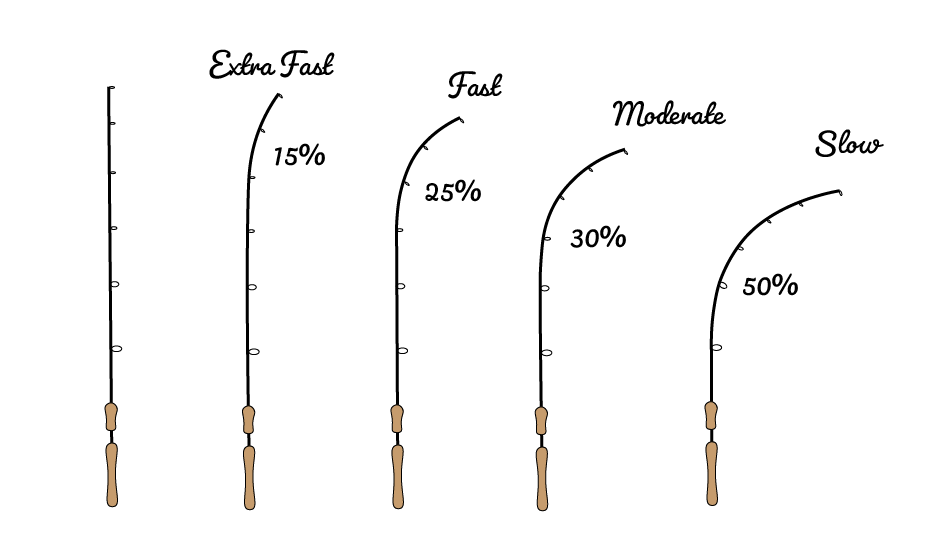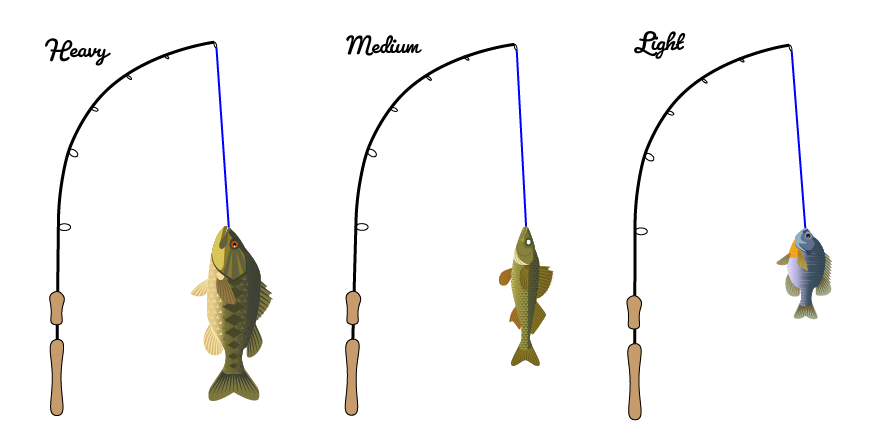Fishing is a fantastic hobby that has been enjoyed for generations. It’s a great way to get outdoors, relax, and connect with nature. However, if you’re new to fishing, choosing the right rod can be a daunting task. With so many different types of fishing rods available, it can be tough to know where to start.
That’s why we’ve put together this guide on how to choose a fishing rod for beginners. We’ll cover everything you need to know, including the different types of fishing rods, the materials they’re made from, and what to look for when making your purchase. Whether you’re planning on targeting trout in a mountain stream or casting off the side of a boat for bass, this guide will help you choose the perfect fishing rod for your needs.
- Decide on the type of fish you want to catch and the fishing technique you prefer.
- Choose the appropriate rod length, power, and action for your target species and fishing style.
- Consider the material and construction of the rod, as well as its sensitivity and durability.
- Set a budget and look for a rod that offers the best value for your money.
- Try out the rod before purchasing and make sure it feels comfortable and balanced in your hands.

How to Choose a Fishing Rod for Beginners?
Fishing is a fun and rewarding hobby that can be enjoyed by people of all ages. However, choosing the right fishing rod can be a daunting task, especially for beginners. With so many different types and sizes of fishing rods available, it can be difficult to know where to start. In this article, we’ll provide you with some tips and advice on how to choose the perfect fishing rod for your needs.
1. Determine Your Fishing Style
When choosing a fishing rod, it’s important to consider your preferred fishing style. Are you planning to fish in freshwater or saltwater? Do you want to catch small or large fish? Do you prefer to fish from a boat or from the shore? These are all important factors to consider when selecting a fishing rod.
If you’re planning to fish in freshwater, a lightweight spinning rod is a great choice. For saltwater fishing, a heavier rod with a sturdy butt section is ideal. If you’re targeting larger fish, such as salmon or tuna, a heavy-duty rod with a fast action is recommended.
2. Consider the Rod Length
The length of your fishing rod will depend on your fishing style and the type of fish you’re targeting. Longer rods are great for fishing in open water or from a boat, while shorter rods are better suited for fishing in tight spaces or from the shore.
A good rule of thumb is to choose a fishing rod that is at least as long as your height. This will help you cast further and provide more leverage when reeling in a fish.
3. Determine the Power and Action
The power and action of a fishing rod are two important factors to consider when selecting a rod. The power refers to the rod’s strength and is determined by the thickness of the rod’s blank. The action refers to how much the rod bends when pressure is applied to the tip.
For beginners, a medium power rod with a moderate action is a good choice. This will provide enough strength to catch small to medium-sized fish, while still allowing for a good amount of sensitivity and control.
4. Check the Rod Material
Fishing rods are typically made of fiberglass, graphite, or a combination of the two. Graphite rods are more sensitive and lighter, while fiberglass rods are more durable and flexible.
For beginners, a graphite rod is a good choice as it provides a good balance of sensitivity and durability. However, if you’re planning to fish in rocky areas or areas with a lot of debris, a fiberglass rod may be more suitable.
5. Consider the Handle Type
The handle of a fishing rod is an important factor to consider as it affects your comfort and grip. Fishing rod handles are typically made of cork or EVA foam.
For beginners, a cork handle is a good choice as it provides a good grip and is comfortable to hold. However, if you’re planning to fish for extended periods of time, an EVA foam handle may be more comfortable.
6. Determine the Reel Seat
The reel seat is where the fishing reel attaches to the rod. It’s important to choose a reel seat that is compatible with your fishing reel and provides a secure fit.
For beginners, a graphite reel seat is a good choice as it is lightweight and provides a good grip. However, if you’re planning to fish for larger fish, a metal reel seat may be more suitable.
7. Check the Line and Lure Weight
The line and lure weight are important factors to consider when choosing a fishing rod. The line weight refers to the strength of the fishing line, while the lure weight refers to the weight of the lure you’ll be using.
For beginners, a fishing rod with a line weight of 6-10 pounds and a lure weight of 1/4-3/4 ounces is a good choice. This will provide enough strength to catch small to medium-sized fish, while still allowing for a good amount of sensitivity and control.
8. Consider the Brand and Price
When choosing a fishing rod, it’s important to consider the brand and price. While there are many good quality fishing rods available at reasonable prices, it’s important to choose a reputable brand that provides good quality and customer support.
9. Try Before You Buy
Before making a final decision, it’s important to try out different fishing rods to see which one feels most comfortable and suits your needs. Many fishing stores have demo rods available for customers to try out.
10. Benefits of Choosing the Right Fishing Rod
Choosing the right fishing rod can make all the difference in your fishing experience. A well-chosen fishing rod will provide the right amount of sensitivity and control, making it easier to catch fish. It will also be comfortable to hold and use, reducing fatigue and allowing you to fish for longer periods of time.
In conclusion, choosing the right fishing rod is an important decision for beginners. By considering your fishing style, rod length, power and action, rod material, handle type, reel seat, line and lure weight, brand and price, and trying before you buy, you can find the perfect fishing rod for your needs.
Key Takeaways: How to Choose a Fishing Rod for Beginners?
- Before choosing a fishing rod, determine the type of fish you want to catch and the location where you will be fishing.
- Consider the length, power, and action of the fishing rod. The length of the rod should be based on the type of fish and location, while power and action depend on the casting technique and type of lure used.
- Choose a material for your fishing rod. Graphite and fiberglass are popular choices for beginners as they are durable and versatile.
- Don’t forget about the handle and reel seat. Choose a handle that is comfortable to hold and a reel seat that will fit your chosen reel.
- Test out different rods before making a final decision. Visit a local fishing store or attend a fishing expo to get a feel for different rods and find the one that is right for you.
- Remember to take care of your fishing rod. Clean it after each use and store it properly to ensure its longevity.
Choosing the right fishing rod as a beginner can be overwhelming, but by following these key takeaways, you’ll be well on your way to catching your first fish. Don’t forget to have fun and enjoy the experience!

Bass Fishing for Beginners – How to Choose a Fishing Rod – How to Fish
As a professional writer, I know that choosing the right fishing rod can have a significant impact on your overall fishing experience, especially if you are a beginner. It is essential to consider your skill level, the type of fish you are targeting, and the fishing location when selecting a fishing rod. By following the tips outlined in this guide, you can make an informed decision and choose the right fishing rod for your needs.
Remember that selecting a fishing rod is not just about finding the most expensive or popular one on the market. You need to choose a rod that aligns with your fishing goals, budget, and experience level. Invest time in researching different rod types, brands, and models, and don’t hesitate to seek advice from experienced anglers or fishing experts. With a little research and careful consideration, you can find the perfect fishing rod that will help you catch more fish and enjoy your time on the water.
